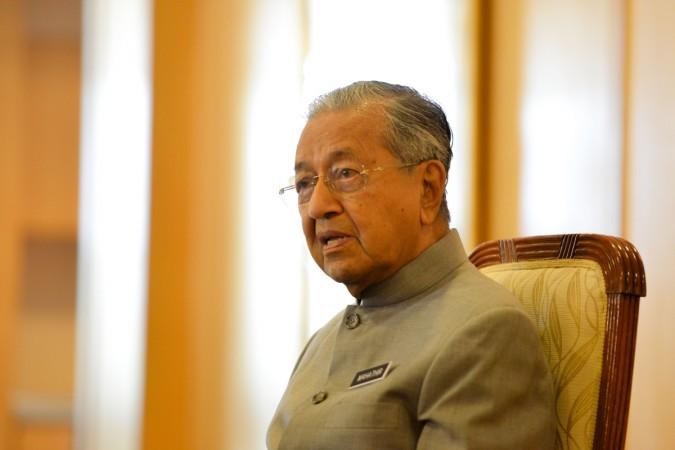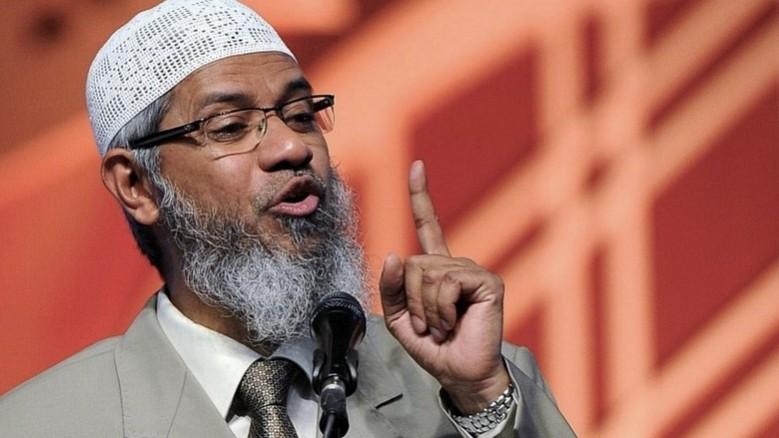
Malaysia joined Turkey and China in raising the Kashmir issue at the United Nations General Assembly (UNGA), with its Prime Minister Mahathir Mohamad accusing India of "invading and occupying the country" of Jammu and Kashmir.
In his address to the 74th UNGA, Mohamad said: "Now, despite the UN resolution on Jammu and Kashmir, the country has been invaded and occupied."
"There may be reasons for this action but it is still wrong. The problem must be solved by peaceful means. India should work with Pakistan to resolve this problem. Ignoring the UN would lead to other forms of disregard for the UN and the Rule of Law," said Mahathir.
Prime Minister Narendra Modi had met Mahathir in Russia earlier this month on the sidelines of the Eastern Economic Forum, when India raised the issue of extradition of controversial Islamic preacher Zakir Naik, and Kuala Lumpur discussed the issue of Kashmir.
According to Malaysian media, Kashmir was the 'main topic' during the bilateral meeting between Mahathir Mohamad and Modi on September 5.
Malaysian Foreign Minister Datuk Saifuddin Abdullah told reporters later, "PM Modi took time to clarify the position of Jammu and Kashmir while Mahathir Mohamad explained Malaysia's stand that all parties should meet and adhere to United Nations resolutions.
Saifuddin said Mahathir did not pledge support for or against any parties but hoped "the conflict would be settled and it would not escalate in a war".
Mahathir had also suggested bringing in a "third party if necessary or to bring the case to international court".
Saifuddin told reporters that, "Malaysia as an Islamic country with its own position among Islamic countries can explain the actual situation if the matter is brought up at any international platform".
On the issue of , he said: "Zakir Naik was mentioned by Prime Minister Modi in passing and he (Modi) said the matter was being discussed by officers of both countries.
"That was how he (Modi) presented it. Then, Mahathir did not respond as most of the time was used to discuss Kashmir.

However, Indian Foreign Secretary Vijay Gokhale had said then that the two leaders discussed the extradition of Naik.
Later, Mahathir had rejected the claim that Modi had asked for Naik to be extradited.
During his press conference in Delhi, External Affairs Minister S. Jaishankar had said that India has put in an extradition request for Zakir Naik.
Mahathir, who had met Zakir Naik in July last year, had told media that Naik would not be deported since he has Permanent Residency, as long as he does not create any problems.
On the sidelines of the UNGA, Pakistan, Turkey and Malaysia held a trilateral meeting during which they decided to jointly launch an English language TV channel dedicated to confronting Islamophobia and removing "misperceptions" about Islam.
Pakistani Prime Minister Imran Khan announced the decision on Thursday after his meeting with Turkish President Recep Tayyip Erdogan and Malaysian Prime Minister Mahathir Mohamad.
The three-nation channel would offer Muslims a dedicated media presence to help in "setting the record straight" on Islam and fighting the phenomenon of Islamophobia internationally.
At the UNGA, China, a good friend of Pakistan, had raised the Kashmir issue, with its Foreign Minister Wang Yi in his address repeating Beijing's stated position on Kashmir.
He had termed Kashmir as a "dispute left from the past" and called for its resolution based on UN Security Council resolutions and bilateral agreements. "No actions that would unilaterally change the status quo should be taken," Wang had said.
Turkey's Erdogan had in his address said that despite the UN resolutions, "eight million people are stuck" in Kashmir. He had called for the Kashmir issue to be solved through dialogue rather than conflict and criticised the international community for failing to pay attention to the issue.
India is Malaysia's 10th largest trading partner, where the total bilateral trade target of $15 billion set for 2020 was achieved in 2018/2019.








